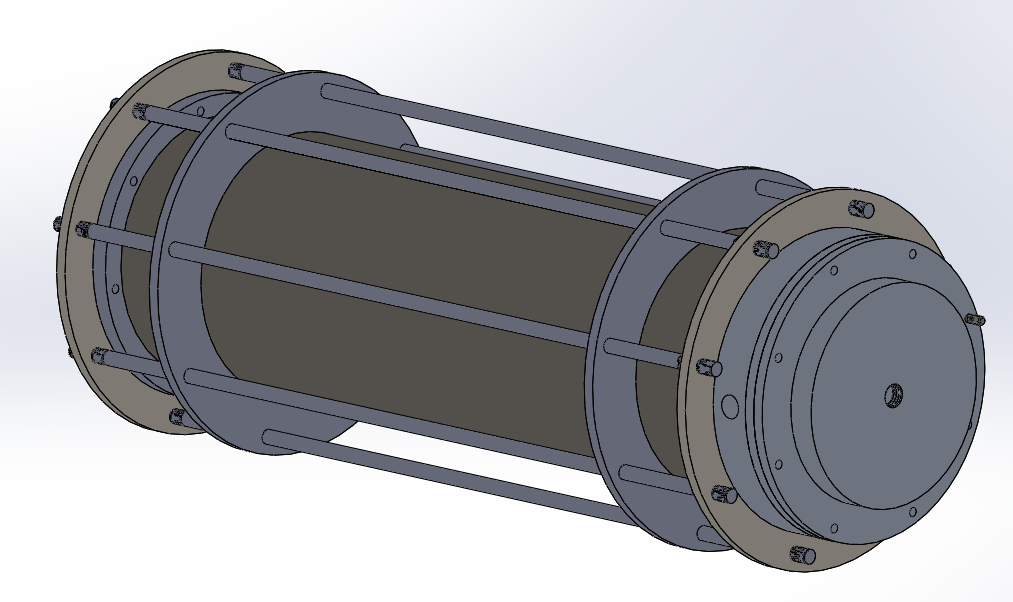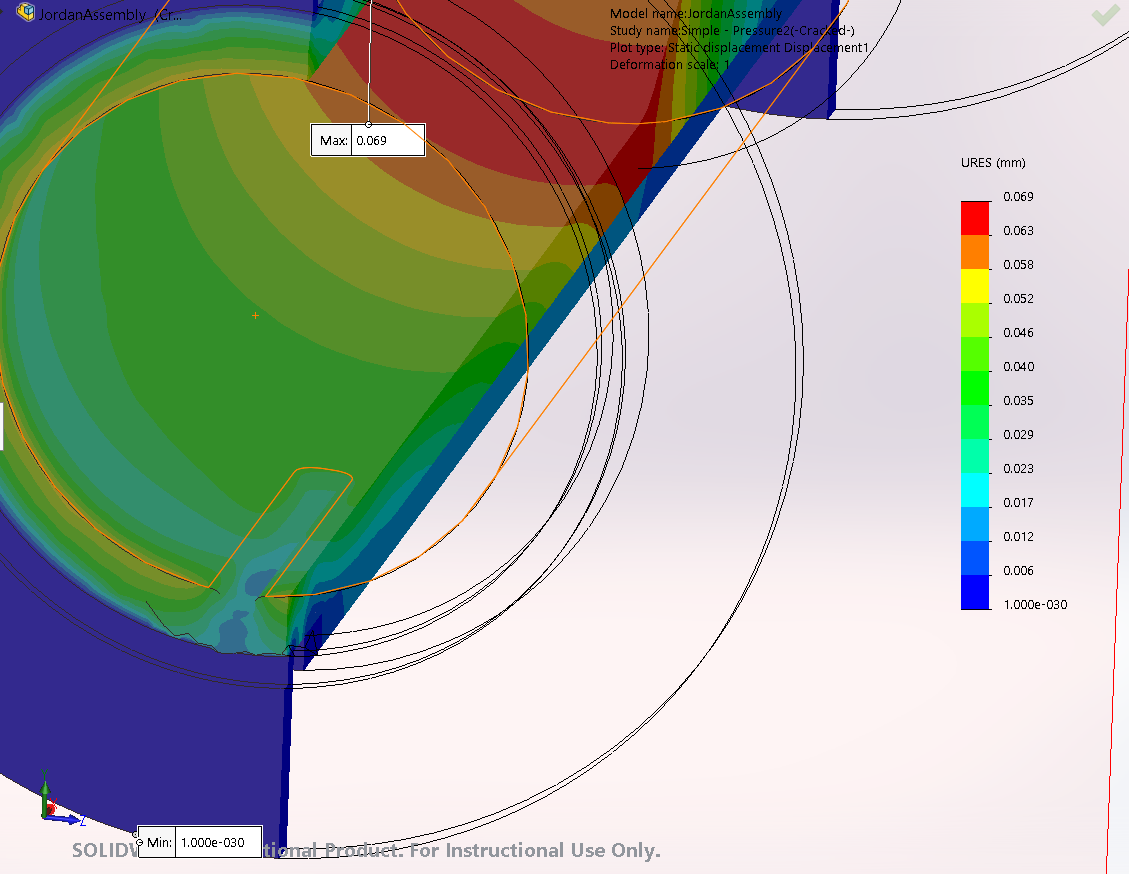SKILLS REQUIRED
Thermodynamics
Fluid Mechanics
MatLab
Rocketry
Fatigue Failure Analysis
Vibration Failure Analysis
SUMMARY: Analyzed performance of rocket engine designed for UCI Rocket Project
Complete Engine from the 2018 UCI Rocket Project
DESCRIPTION:
This project was performed in conjunction with the Rocket Project. However, the focus was neither designing nor building the rocket itself but instead focused on determining different modes of failure through simulation for the rocket already designed. The different modes of failure we were interested in included failure from melting, thermal expansion failure, acoustic failure, and failure due to buckling. Additionally, we focused only on the rocket engine due to time constraints instead of the whole structure.
The main method of determining if a part failed or not was to measure the Von Mises stresses present in our components. While Von Mises stress is not technically a stress, it does represent the amount of deformation that occurs in our components due to the application of different loads. Some of the loads applied in our simulations (both steady state and transient) included: heat transfer from the combustion process, buckling from continued operation (max 20 seconds), failure from acoustic instabilities, and failure from crack formation and propagation.
Deformation (in millimeters) of our engine for one of the pressure tests
Finally, for areas that were found to fail, different measures were tested to figure out how to keep future configurations from sharing the same fate. For example, in the acoustic/modal simulations, a failure was discovered for one of the configurations and to prevent that failure, flanges were added to dampen those oscillations.
For additional information, please see the report attached
RESULTS




